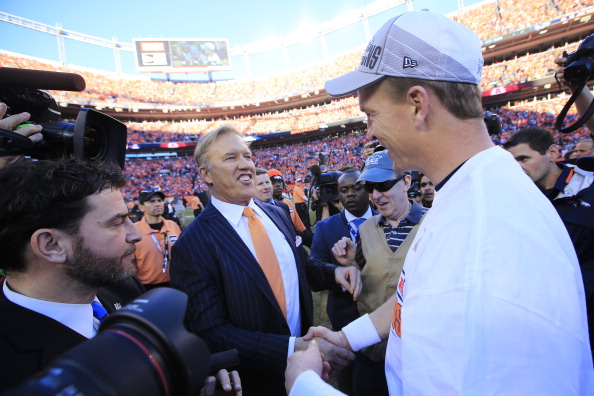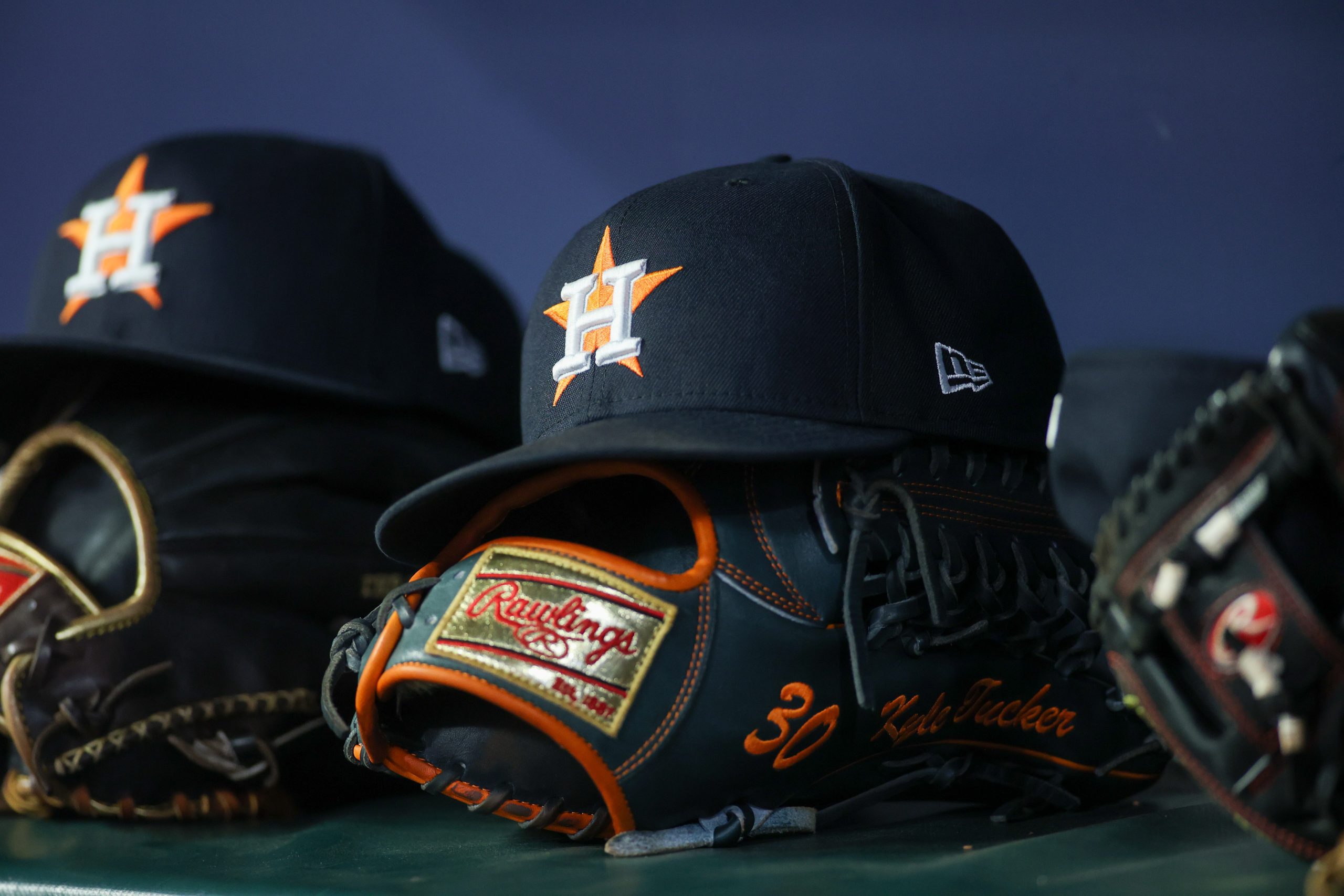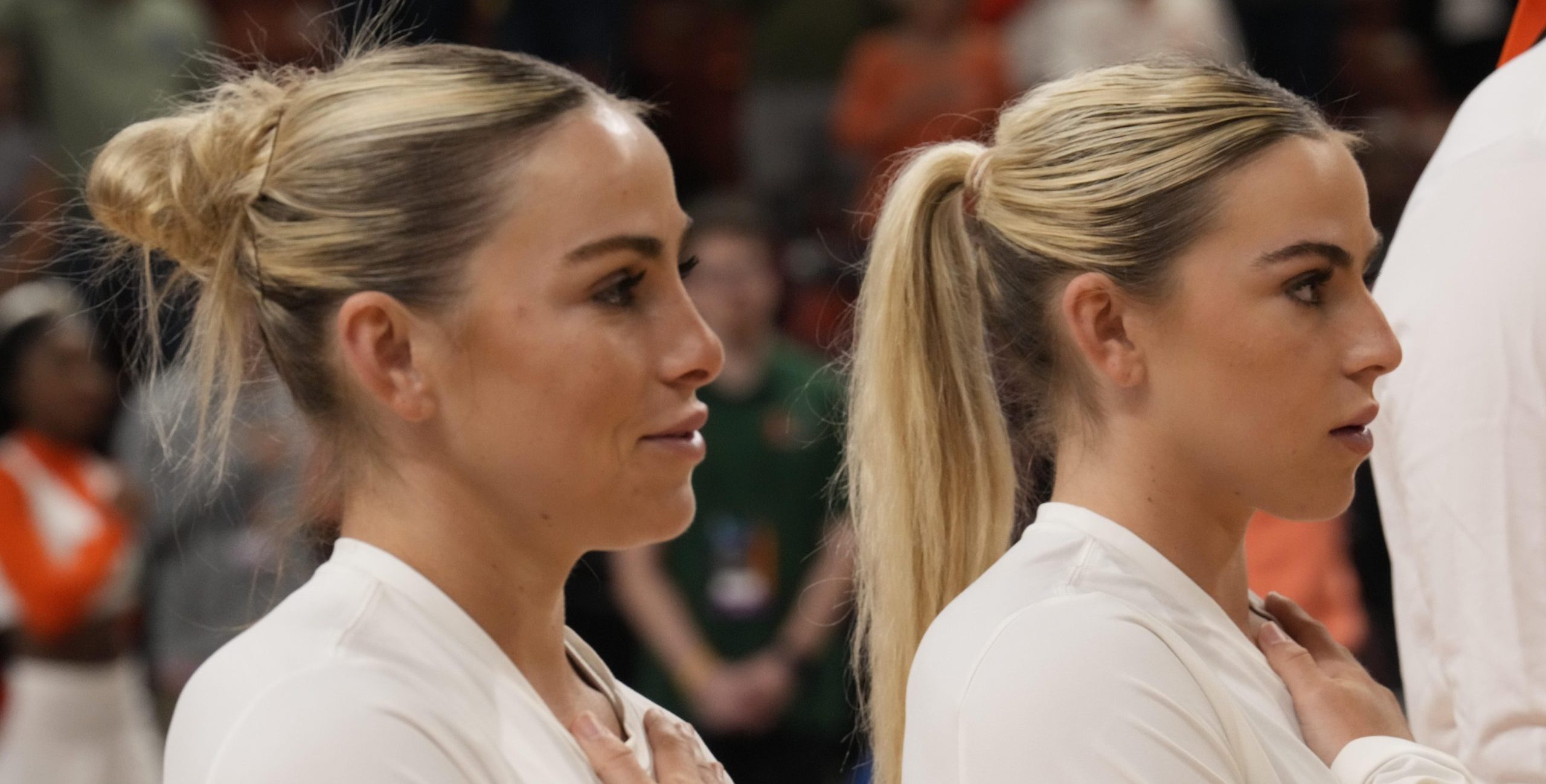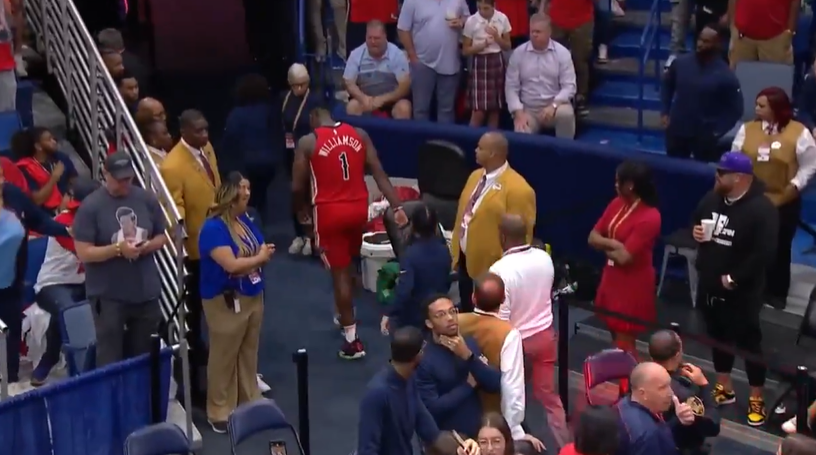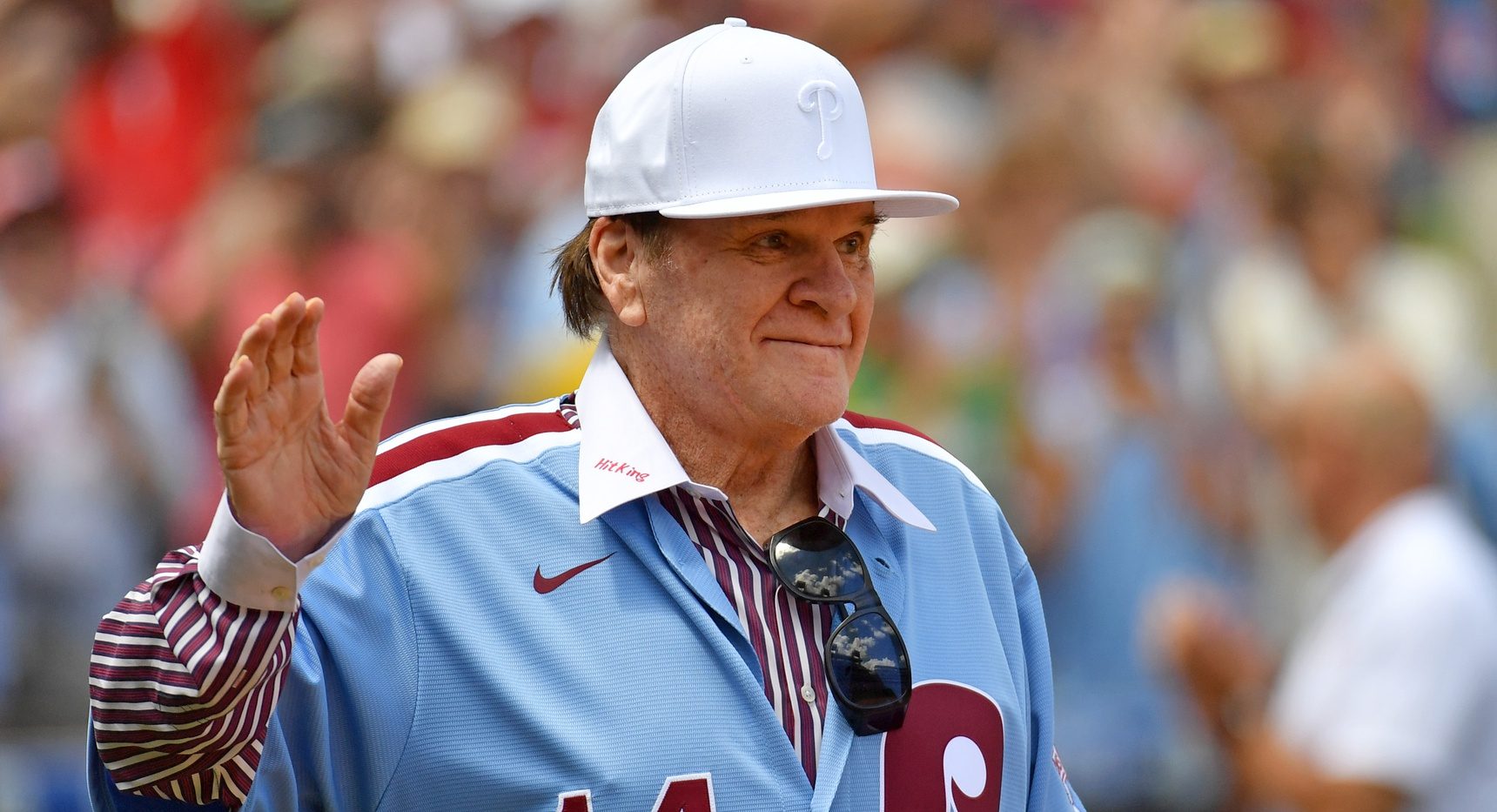When Peyton Manning takes the Levi’s Stadium field for Super Bowl 50, he’ll be the oldest quarterback ever to start an NFL championship game. Manning is 39 years old and his 40th is looming in March, and as such, there’s been — and there will continue to be — plenty of talk about whether Manning, in his 18th year in the league, will retire after facing the Panthers.
Manning hinted to Patriots coach Bill Belichick during their AFC title postgame chat that he’d be done soon. Manning told him, “Hey, listen, this might be my last rodeo, so it sure has been a pleasure,” and earlier this month, Manning told reporters, “I’d be lying if I said I’m not thinking about [retirement].”
[table id=SBQBs /]
Clearly, Manning hasn’t been at his best this year. In fact, this was the worst season of his career, and even though the Broncos are back to the Super Bowl for the second time in three years, their success no longer has to be dependent on Manning’s performance. They have a solid running game and the best defense in the NFL, and Manning, at this point, is more of a game manager than an offensive stalwart. But Manning will be the starter and deservedly so — can you imagine Brock Osweiler leading Denver to a victory vs. New England in the AFC title game? — and when he does, he’ll be older than any other Super Bowl quarterback in history.
Does this automatically mean the Broncos will lose? Or have older quarterbacks in the past had the ability to move their creaky hinges and stiff joints in such a way that led their teams to victory?

In Super Bowl history, there have been nine quarterbacks older than 35 who have started the game — and two, Roger Staubach and John Elway, have started two games past the age of 35. Combined, they have a record of 6-5, and on Feb. 6, Manning will try to keep that record above .500. Considering six of those starts have come in the past 18 years, it seems as though we’re living in an golden age of older-quarterback success. Here are six examples of quarterbacks older than 36 who had the chance to start a Super Bowl, and here’s what their results could mean for Manning.
John Elway (37 years old for Super Bowl XXXII and 38 years old for Super Bowl XXXIII):
http://gty.im/72544506
What a way to end his career. After falling short in Super Bowls XXI, XXII, XXIV and having to live with postseason disappointment for most of his career — that’s one thing he has in common with the man who eventually replaced him as the Broncos star quarterback — Elway put it together in the final game of his career, throwing for 336 yards and a touchdown while winning the Super Bowl MVP award. But the highlight of his career came the year before when he led Denver on a fourth-quarter game-winning drive to dispatch the Packers. The highlight (which you’ve probably seen dozens of times) was this:
Kurt Warner (37 years old for Super Bowl XLIII):
http://gty.im/84582057
He was incredible the first time he played for a league title, throwing for 414 yards and two touchdowns en route to the game MVP and the victory in Super Bowl XXXIV when he was a wee lad of 28. Warner was nearly as excellent a decade later, throwing for 377 yards and three touchdowns vs. the Steelers, but Ben Roethlisberger succeeded with a last-minute touchdown drive to keep Warner from another title. From the time Warner played in his first Super Bowl until his last, he had lost a starting job with the Rams to Marc Bulger, with the Giants to Eli Manning ,and with the Cardinals to, gasp, Matt Leinart. Warner, though, was vindicated by his final chance at an NFL title, and he had no less a figure than President Barack Obama in his corner. “Kurt Warner is a great story,” Obama said before the game, “and he’s closer to my age than anybody else in the field.” It makes you wonder if Obama will be rooting for the Broncos on Feb. 7, because, now it’s Manning who’s closer to his age than anybody else.
Rich Gannon (37 years old for Super Bowl XXXVII):
http://gty.im/458808058
Coming off the best season of his career — seriously, he was a monster in 2002, leading the league in completions (418), attempts (618) and passing yards (4,689) — Gannon, the league’s MVP, should have been full of confidence entering this matchup with the Buccaneers. Instead, he threw five interceptions (three for pick-6s) in the 48-21 loss. He called it a “nightmarish performance,” and it basically kick-started the beginning of the end of his career.
Tom Brady (37 years old for Super Bowl XLIX):
http://gty.im/462751792
Though Tom Brady wasn’t the game’s ultimate hero — that would be Malcolm Butler and his last-second interception of Seattle’s Russell Wilson — he also threw two touchdowns in the final 8 minutes of the game to erase a 10-point Patriots deficit and gave his team its first Super Bowl title in 10 years. Brady, who has said he wants to play until he’s in his late 40s, didn’t look old in the slightest, throwing 50 passes and completing 37 of them for 328 yards and four touchdowns. There were questions earlier in the season whether Brady still had his Hall of Fame skills. This game — and the entire 2015 season, for that matter — left no doubt.
Manning himself (37 years old for Super Bowl XLVIII):
http://gty.im/470136493
Whenever I think of this Super Bowl, this play automatically comes to mind.
https://www.youtube.com/watch?v=tBP_t808xEI
It was clear from that moment that the Broncos had no chance to beat the Seahawks, and it was yet another disappointing playoff appearance for Manning.
Johnny Unitas (37 years old for Super Bowl V):
http://gty.im/51454591
In his last season as a full-time starter, Unitas led the Baltimore Colts to a 10-2-1 record and started in his team’s 16-13 comeback championship-winning victory against the Cowboys. Though Unitas left midway through the second quarter with a rib injury (after throwing a 75-yard touchdown pass to the tie game at 6-6), it’s interesting that in the leadup to the game, Unitas was described in words that some use for Manning today. “Age means only one thing,” Cowboys coach Tom Landry said. “He can’t play every one of the 14 games the way he used to, but on any given day, he is as good as in his prime.” Said Colts coach Don McCaffrey: “If there are changes [in Unitas’ quality of play], I haven’t noticed. Maybe his arm isn’t as strong — but his head is stronger.”
And what do observers say about Manning today? “He still has to complete the pass,” former NFL safety and current analyst Darren Woodson said, via ESPN. “Teams are sitting on routes because they know he can’t throw the deep ball. But he can still use his mind to beat teams. He’s by far the smartest quarterback we’ve seen in a while.”
All of which is to say that an old quarterback, even an old quarterback who’s already entrenched in his late 30s and who doesn’t have the physical skills he once did, can win a Super Bowl. As for the Broncos starting quarterback: the old Manning likely is gone forever, but an old Manning might still be good enough to win one final big game.

